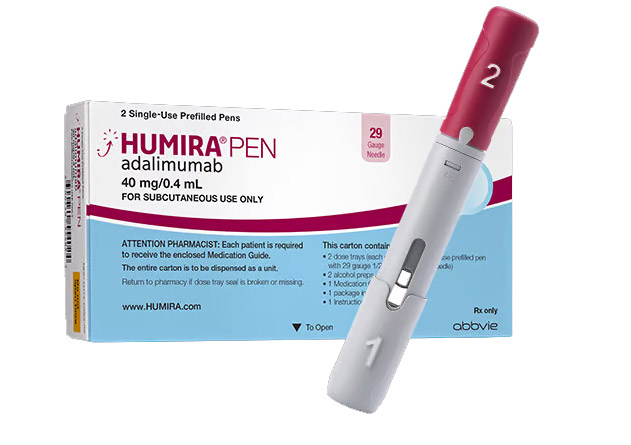Blog
Blog
Biosimilars making inroads into Humina sales, but docs still cautious on switching: Spherix

This year, there has been an influx of biosimilars aiming to capture a share of the $20 billion annual revenue generated by AbbVie’s mega biologic blockbuster Humira. However, these copycat biologics have yet to make a significant impact in the market.
That’s according to an analysis from Spherix Global Insights, which found a “continued erosion” of AbbVie’s Humira, also known as adalimumab, in “favor of a growing embrace of these diverse biosimilars.”
But Spherix warns that healthcare prescribers “have not wholly warmed to these newcomers,” with dermatologists in particular showing the “highest degree of stated resistance to change” and rheumatologists reporting the least actual erosion to branded Humira.
The report is based on a survey of U.S. healthcare specialists, including 80 dermatologists, 83 gastroenterologists and 81 rheumatologists.
Humira is a moneymaking juggernaut, bringing in $20 billion a year for AbbVie at its peak over the past few years.
It has achieved this by expanding its sales platform since receiving its initial FDA approval in 2002. This expansion has been consistent, with the addition of increasingly lucrative indications over the years. Today, these indications encompass rheumatoid arthritis, psoriatic arthritis, Crohn’s disease, ulcerative colitis, plaque psoriasis and other autoimmune disorders.
AbbVie has, for years, been preparing for generic competition affecting its flagship drug franchise. Recently, it has reduced advertising for this medication across all its brands and shifted its focus to immunology drugs like Rinvoq and Skyrizi to make up for the sales decline.
Humira sales are, in fact, expected to slip some 37% this year, according to AbbVie’s recent financials, thanks in the most part to the new onslaught of biosimilars.
This year, the introduction of Amjevita by Amgen represents a significant biosimilar entrant against Humira. Amjevita received FDA approval in January with the same broad labels as Humira, followed by a wave of other biosimilars in the summer.
Other prominent players include Boehringer Ingelheim’s Cyltezo, Sandoz’s Hyrimoz and Biocon’s Hulio as well as Coherus BioSciences’ Yusimry.
Spherix’s survey revealed that the “vast majority” of participants were aware of the increasing availability of multiple adalimumab biosimilars. They primarily recognized Amjevita as a prominent approved adalimumab biosimilar, largely due to the Amgen name and the anticipation of its arrival over the years.
Spherix found that Cyltezo by Boehringer Ingelheim is widely preferred across specialties. This preference is attributed to its unique status as the sole FDA-approved biosimilar with interchangeability status. Essentially, the FDA has indicated that there is minimal difference between Humira and Cyltezo when switched, which should alleviate safety and efficacy concerns for doctors prescribing the drug.
Spherix also found that Sandoz’s Hyrimoz and Biocon’s Hulio garner “notable recognition” among dermatologists and rheumatologists, while Coherus BioSciences’ Yusimry “enjoys higher recall rates” among gastroenterologists.
Overall, analysts found that Amjevita was the most familiar among biosimilar brands launched in July, with Cytelzo in a respectable second place, albeit at a considerable distance.
Spherix noted that one missing element needed to boost biosimilar uptake is “clear and regular sales representative messaging,” given that it found most specialists report they do not know how to differentiate between all the new adalimumab biosimilars on the market.
“Regarding sales representative contact, Humira continues to lead the pack with the most regular and frequent sales representative visits, regardless of specialty,” the report found, while Amjevita contact rates are highest among the biosimilars, with Amjevita messaging regularly zeroing in on comparative efficacy and cost savings/coverage.
“Of the newer launched brands, Cyltezo again has the greatest presence out of the gate, with messaging nearly always including a focus on the brand’s interchangeability status; however, the majority have yet to meet with a Boehringer Ingelheim representative,” according to the report.
The report noted that efficacy remains “top of mind” as prescribers’ leading concern for adalimumab biosimilars, followed by safety concerns and an overall lack of cost savings.
Πηγή: fiercepharma.com







